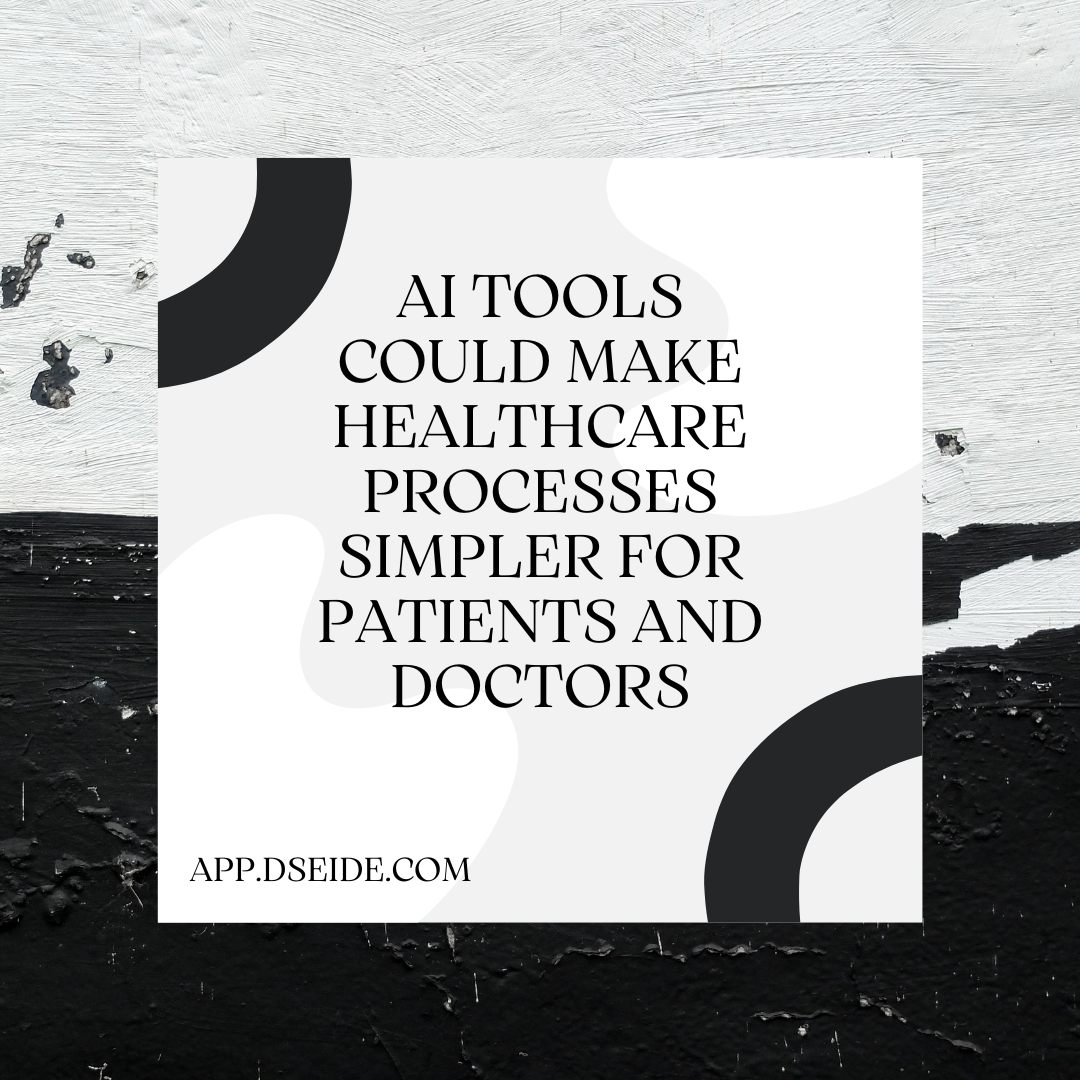Healthcare-focused AI startups are raising billions to help improve the US system.
AI can help streamline clinical documentation, drug research, and medical billing.
This article is part of "Trends in Healthcare," a series about the innovations and industry leaders shaping patient care.
The founder of Suki, a startup that uses artificial intelligence to automate healthcare documents, raised $70 million in funding from investors in a Series D round that was disclosed this past fall.
He said it really didn't take that much persuading: With an epidemic of stressed- and burned-out physicians, there was an obvious need for their AI software, he added.
"Most of the investor conversations over the last year and a half have been, 'Well, it looks like the market is here,'" said Punit Singh Soni, Suki's founder. "Are you going to be the winner or not?"
Suki sells an AI-powered assistant that takes notes during a conversation between patients and clinicians. The notes can be reviewed by the doctor and submitted as an electronic health record. This saves time on administrative tasks and allows physicians more time to take care of patients, a resource that's becoming increasingly limited among healthcare professionals.
Cash-strapped hospitals and private practices have lagged behind the financial-services and telecommunications industries in applying newer technologies, but the healthcare industry is increasingly considering artificial intelligence as it contends with high labor costs and a lot of opportunities to automate routine tasks. The pandemic exacerbated these challenges with staffing shortages as overworked doctors and nurses quit the profession.
To make healthcare more efficient, AI startups like Suki, Zephyr AI, and Tennr have raised millions with vast promises, including making repetitive tasks like billing and note-taking easier, improving the accuracy of clinical diagnosis, and identifying the right patient population for emerging treatments.
But the challenges are vast. The healthcare industry's budget allocations for generative AI are trailing those of many other core industries, such as energy and materials, consumer goods, and retail. Clinical diagnosis will continue to require a human in the loop, so the process can't be fully automated. The healthcare industry is highly regulated, and quite often, venture capitalists will wait for clarity on laws from the federal government before aggressively pushing AI tech advancements forward.
Source: Business Insider
#healthcarestartup #startupfunding #dseide
AI can help streamline clinical documentation, drug research, and medical billing.
This article is part of "Trends in Healthcare," a series about the innovations and industry leaders shaping patient care.
The founder of Suki, a startup that uses artificial intelligence to automate healthcare documents, raised $70 million in funding from investors in a Series D round that was disclosed this past fall.
He said it really didn't take that much persuading: With an epidemic of stressed- and burned-out physicians, there was an obvious need for their AI software, he added.
"Most of the investor conversations over the last year and a half have been, 'Well, it looks like the market is here,'" said Punit Singh Soni, Suki's founder. "Are you going to be the winner or not?"
Suki sells an AI-powered assistant that takes notes during a conversation between patients and clinicians. The notes can be reviewed by the doctor and submitted as an electronic health record. This saves time on administrative tasks and allows physicians more time to take care of patients, a resource that's becoming increasingly limited among healthcare professionals.
Cash-strapped hospitals and private practices have lagged behind the financial-services and telecommunications industries in applying newer technologies, but the healthcare industry is increasingly considering artificial intelligence as it contends with high labor costs and a lot of opportunities to automate routine tasks. The pandemic exacerbated these challenges with staffing shortages as overworked doctors and nurses quit the profession.
To make healthcare more efficient, AI startups like Suki, Zephyr AI, and Tennr have raised millions with vast promises, including making repetitive tasks like billing and note-taking easier, improving the accuracy of clinical diagnosis, and identifying the right patient population for emerging treatments.
But the challenges are vast. The healthcare industry's budget allocations for generative AI are trailing those of many other core industries, such as energy and materials, consumer goods, and retail. Clinical diagnosis will continue to require a human in the loop, so the process can't be fully automated. The healthcare industry is highly regulated, and quite often, venture capitalists will wait for clarity on laws from the federal government before aggressively pushing AI tech advancements forward.
Source: Business Insider
#healthcarestartup #startupfunding #dseide
Healthcare-focused AI startups are raising billions to help improve the US system.
AI can help streamline clinical documentation, drug research, and medical billing.
This article is part of "Trends in Healthcare," a series about the innovations and industry leaders shaping patient care.
The founder of Suki, a startup that uses artificial intelligence to automate healthcare documents, raised $70 million in funding from investors in a Series D round that was disclosed this past fall.
He said it really didn't take that much persuading: With an epidemic of stressed- and burned-out physicians, there was an obvious need for their AI software, he added.
"Most of the investor conversations over the last year and a half have been, 'Well, it looks like the market is here,'" said Punit Singh Soni, Suki's founder. "Are you going to be the winner or not?"
Suki sells an AI-powered assistant that takes notes during a conversation between patients and clinicians. The notes can be reviewed by the doctor and submitted as an electronic health record. This saves time on administrative tasks and allows physicians more time to take care of patients, a resource that's becoming increasingly limited among healthcare professionals.
Cash-strapped hospitals and private practices have lagged behind the financial-services and telecommunications industries in applying newer technologies, but the healthcare industry is increasingly considering artificial intelligence as it contends with high labor costs and a lot of opportunities to automate routine tasks. The pandemic exacerbated these challenges with staffing shortages as overworked doctors and nurses quit the profession.
To make healthcare more efficient, AI startups like Suki, Zephyr AI, and Tennr have raised millions with vast promises, including making repetitive tasks like billing and note-taking easier, improving the accuracy of clinical diagnosis, and identifying the right patient population for emerging treatments.
But the challenges are vast. The healthcare industry's budget allocations for generative AI are trailing those of many other core industries, such as energy and materials, consumer goods, and retail. Clinical diagnosis will continue to require a human in the loop, so the process can't be fully automated. The healthcare industry is highly regulated, and quite often, venture capitalists will wait for clarity on laws from the federal government before aggressively pushing AI tech advancements forward.
Source: Business Insider
#healthcarestartup #startupfunding #dseide






